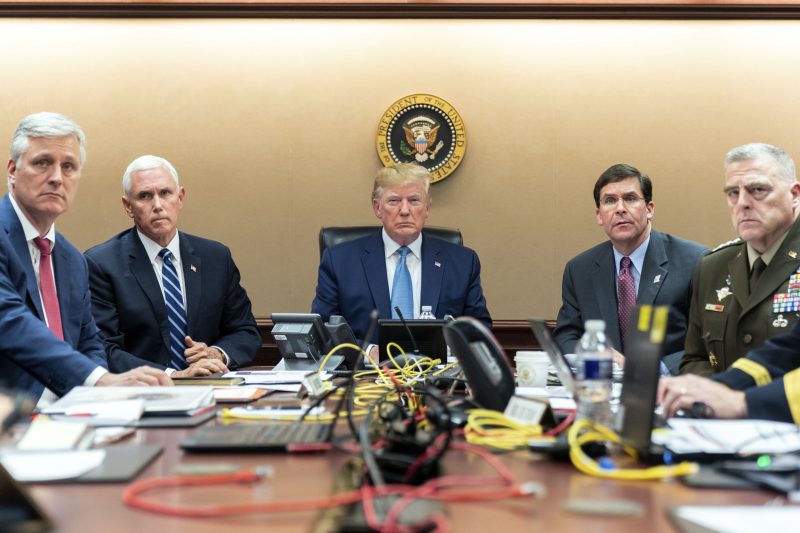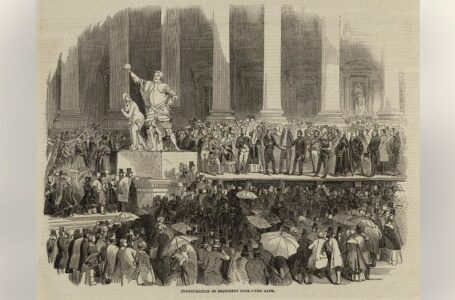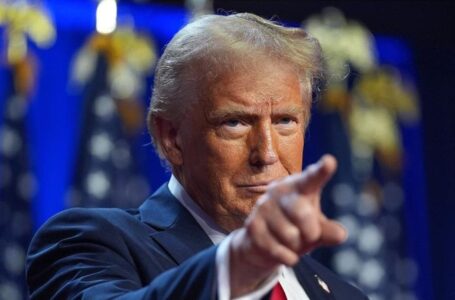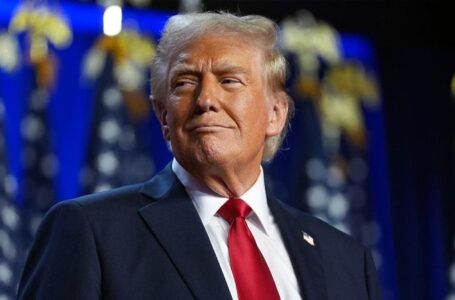Who is Han Zheng, the senior Chinese official attending Trump’s inauguration?
Americans once feared Trump in a crisis. They now prefer him.


The reasons Donald Trump appears to have a slight edge in the same matchup with President Biden that he lost just four years ago are many and complicated. But sometimes a poll comes along and crystallizes one of the big ones.
Such is the case with a new survey from Quinnipiac University released on the eve of the first debate Thursday night.
It asked, “If there were a crisis that put the country at great risk, who would you want in the Oval Office to deal with it: Donald Trump or Joe Biden?”
This is the kind of question that has cut strongly against Trump in each of his two previous presidential campaigns. That’s no longer the case; in fact, it’s suddenly an apparent asset for Trump.
The survey showed 51 percent of registered voters preferred Trump to handle a crisis, while 43 percent preferred Biden.
While Trump holds an eight-point edge today, the same pollster in 2020 showed Biden with a 10- to-17-point advantage on handling a crisis. Ditto the 2016 election, when Hillary Clinton led by double digits. That’s a reversal of around 20 or more points. (The wording of the questions varied somewhat, but the substance was the same.)
The Quinnipiac survey is one of Trump’s best in recent weeks; indeed, it’s Trump’s best Quinnipiac poll of the cycle. But it’s not the only survey to point in this direction.
An NBC News poll in April showed voters preferred Trump’s “ability to handle a crisis” by four points — 46-42. That’s after they preferred Biden on the same question by nine points in April 2020 and Clinton by 18 points in April 2016.
Other polling in 2016 showed Clinton with a similar advantage — between 16 and 20 points.
Indeed, it appeared to be one of Trump’s biggest liabilities in that election, especially. A Gallup poll conducted after the final presidential debate compared the candidates on seven issues; Clinton’s 25-point advantage on handling “international crises” was her biggest of the seven (she prevailed on all of them).
So how have we gotten to a place where Trump suddenly leads on such questions?
Much of it is undoubtedly related to a lack of confidence in Biden’s stewardship of the country, particularly given major concerns about his age. Biden’s in a significantly worse place on such issues than he was four years ago.
But voters also look at Trump’s presidency now in a more favorable light than they did during his actual presidency, irrespective of Biden — something often labeled by Trump critics as “Trump amnesia.” We did have a crisis on Trump’s watch called covid, after all, and Americans reviewed Trump’s performance quite poorly. That’s less the case today.
There’s a real question as to how much it’s about dimming views of Biden and how much about improving views of Trump. This is a binary choice, after all.
But the problem for Biden is the same either way: Trump was clearly viewed as the riskier candidate in both 2016 and 2020 if disaster struck, and that’s not the case anymore.
If there’s some solace for Biden ahead of Thursday night’s debate, it’s in the Gallup numbers. Voters saw Trump and Clinton on the debate stage, and a hypothetical crisis was Trump’s biggest liability. High on Biden’s list of priorities for Thursday night’s debate would seem to be to remind people why they felt that — and why they continued to be concerned about Trump in a crisis during an actual crisis in 2020.











